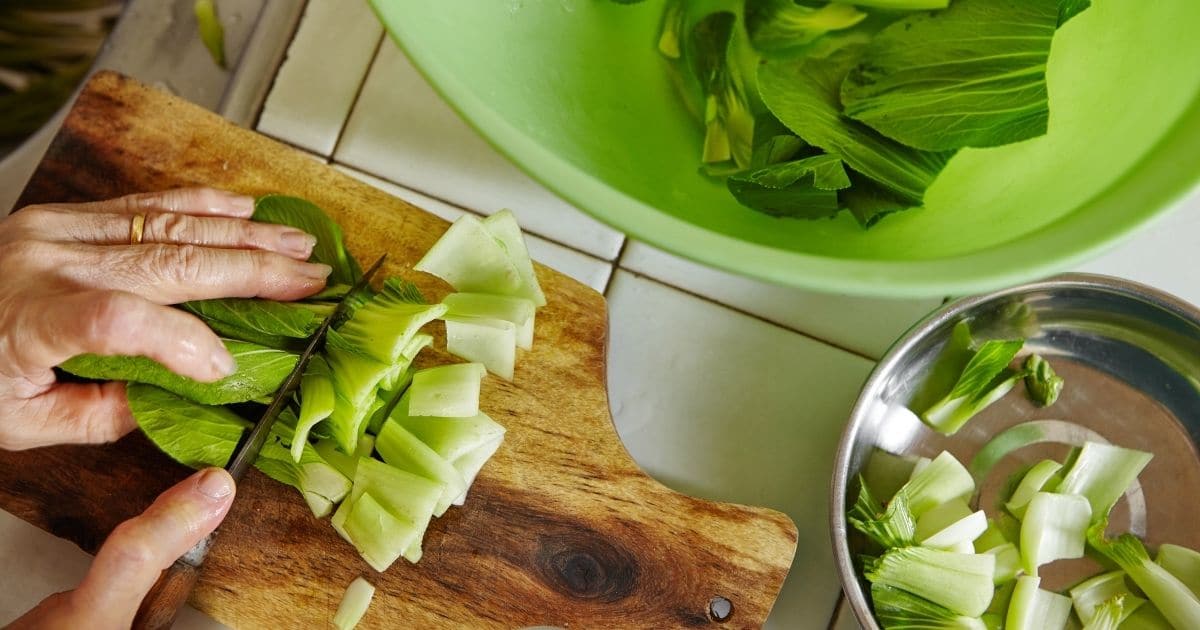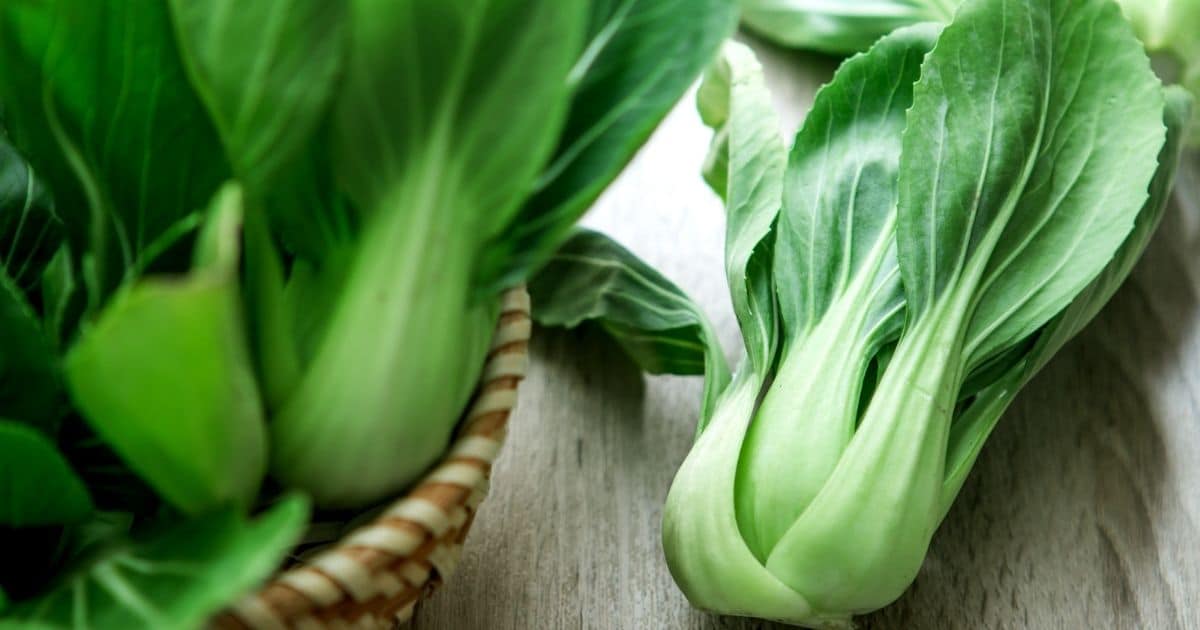Can You Freeze Bok Choy? You Can, If Done Properly
A friend of mine absolutely adores stir-fries and, as a consequence, eats these types of meals at least three times a week. She uses a variety of vegetables and often includes meat or fish. However, her favorite addition to the stir-fry is bok choy.
Bok choy is a type of Chinese cabbage, relished for its crisp, mild, and cabbage-like flavor. As common with the vast majority of leafy greens, the green part of bok choy has a moderately bitter flavor. The white stalk is predominantly water and has a crunchy yet juicy texture.
yes, you can freeze bok choy, blanched, raw, or cooked for up to 12 months.
My friend was keen to know if you could freeze bok choy so she could buy it in bulk, saving her money and ensuring she had it readily available. I was pleased to inform her that yes, you can freeze bok choy, blanched, raw, or cooked for up to 12 months.
Are you wondering what is the best method to use to freeze this vegetable so it doesn’t go mushy when defrosted? Or you may be wondering what is the best way to defrost this delicious crunchy vegetable so it doesn’t go mushy. Keep on reading as we answer these and other questions!
Can I Freeze Raw Bok Choy?
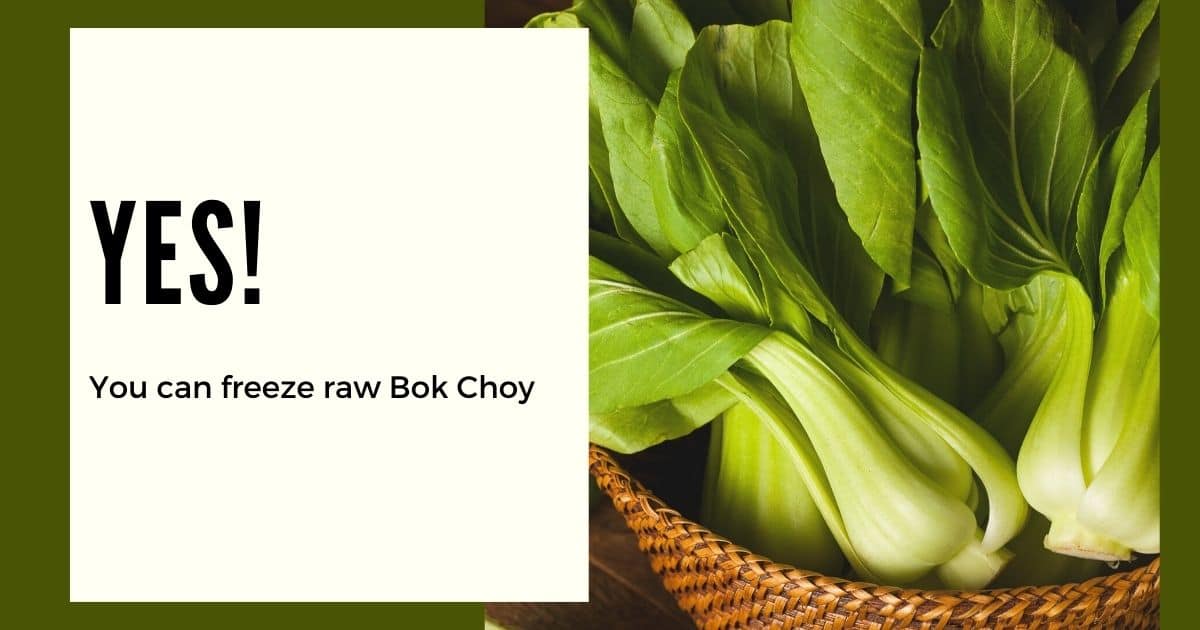
There are different schools of thought on this. A lot of people agree that blanching before freezing stops enzyme action that can cause loss of flavor, texture, and color.
Blanching requires heating vegetables in boiling water or steam for a short time and then submerging them into iced water or placing them under cold, running water to stop the cooking process.
However, others find that blanching bok choy prior to freezing results in it being mushy and withered. So, yes, you can freeze raw bok choy, but it appears that it is a less common approach.
If you do freeze raw bok choy, some preliminary steps are required. These steps are outlined below.
Step 1
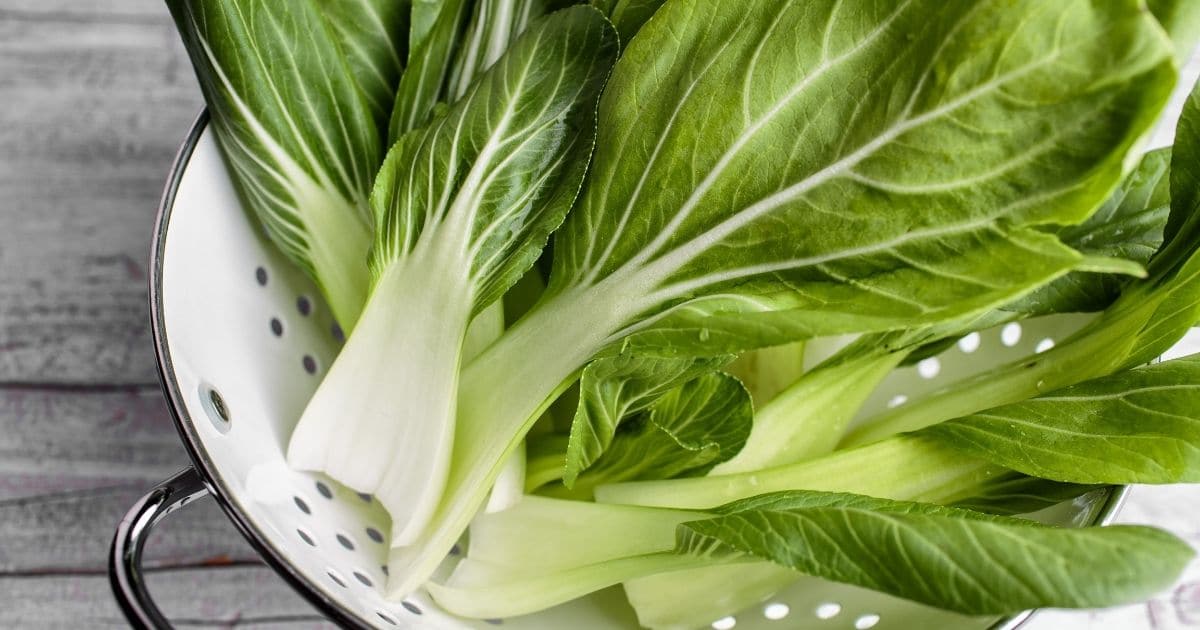
Wash and dry the bok choy. Ensure that it is completely dry as any residue water could risk it going mushy.
Step 2
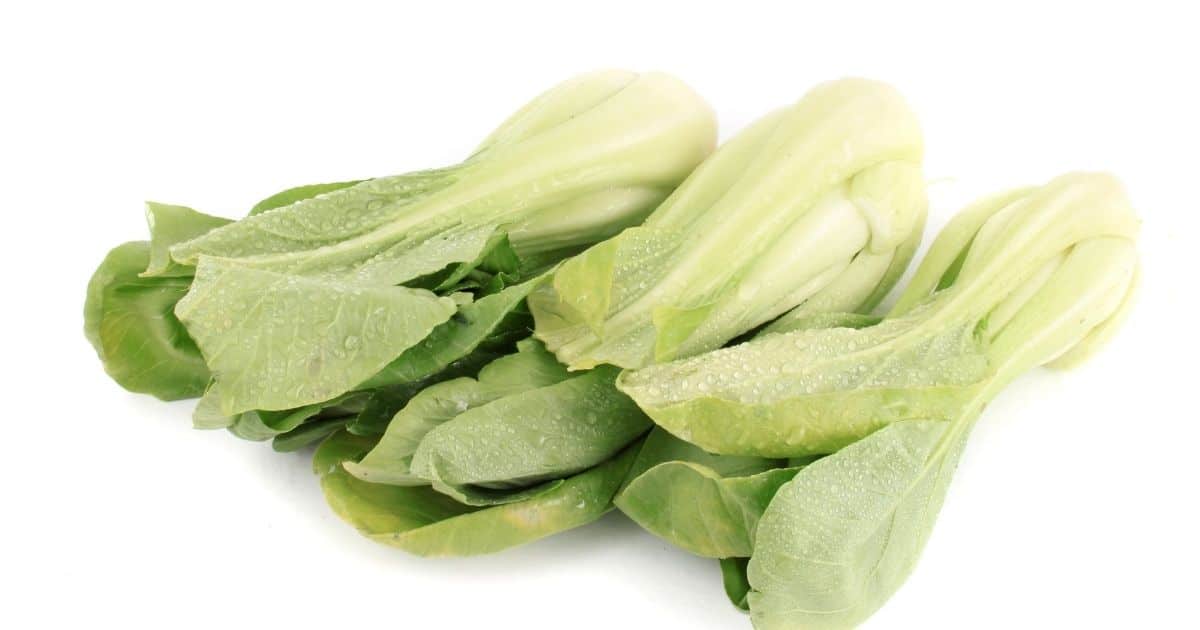
Throw away any pale leaves or ones turning yellow.
Step 3
Cut it ready for use
Shred the bok choy into smaller, bite-sized chunks that could be used in stir-fries or soups. This is unnecessary for baby bok choy as this can be frozen whole.
Step 4
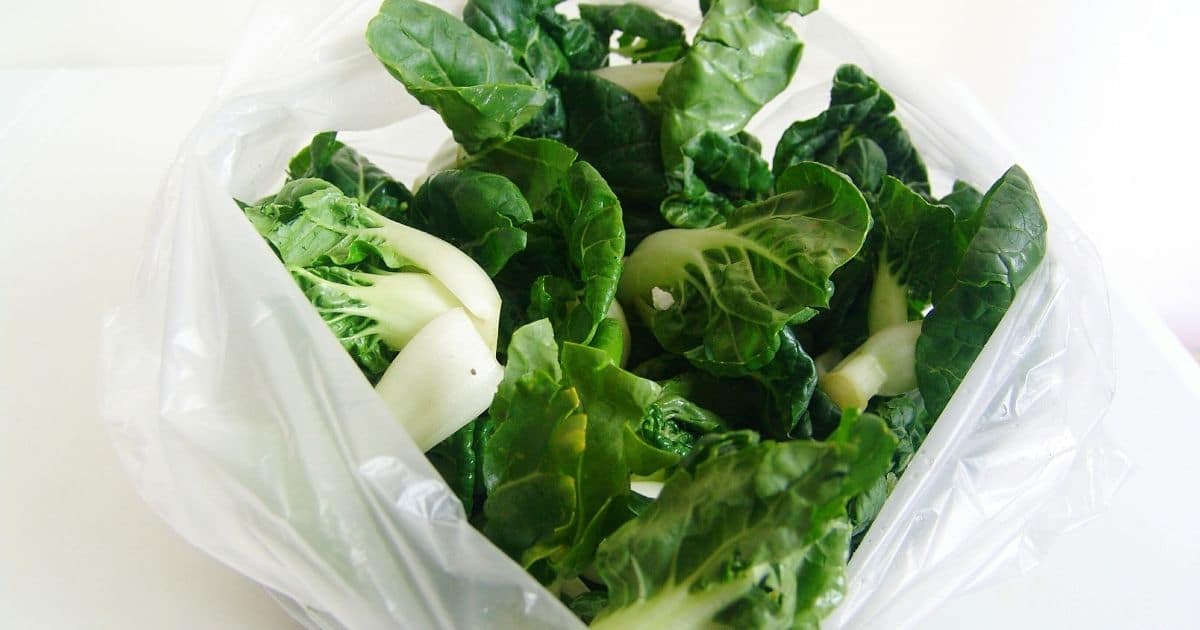
Place the sliced bok choy into freezer bags. Expel any excess air, seal them and label with the date on the bag. Put the bok choy in the freezer, avoiding any heavier foods being placed on top so it does not get damaged.
Do You Have To Blanch Bok Choy Before Freezing?
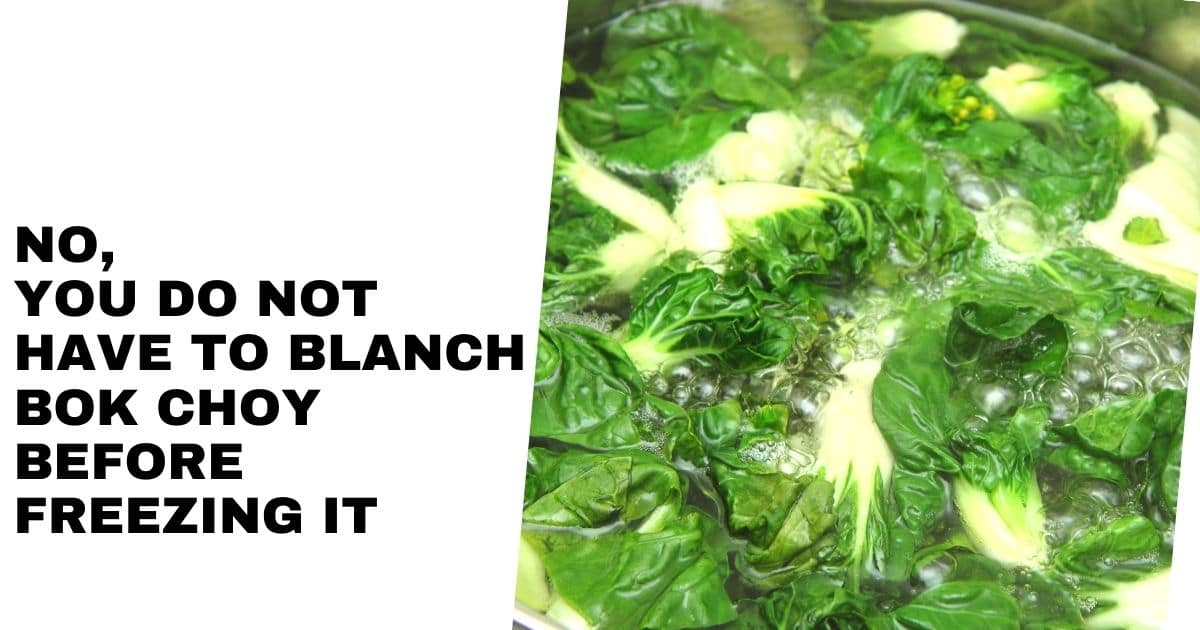
As stated in the “Can You Freeze Raw Bok Choy” section above, it is proven to be quite popular to blanch bok choy before freezing but others think it is not a necessity. In fact, they believe that blanching prior to freezing more likely results in a wilted vegetable as you are adding water in the preparation process.
So, no, you do not have to blanch bok choy before freezing it. However, the bok choy may require a damp paper towel wiped over it to clean it and remove any bits of dirt. It is also recommended that you cut the unblanched bok choy into smaller pieces that you would use in your noodle dish or stir-fry, for example.
By not having to blanch the bok choy before freezing, you are clearly saving time and energy. Therefore, it’s good to know that others have tried and tested this method out and with success.
How Do You Freeze Fresh Bok Choy?
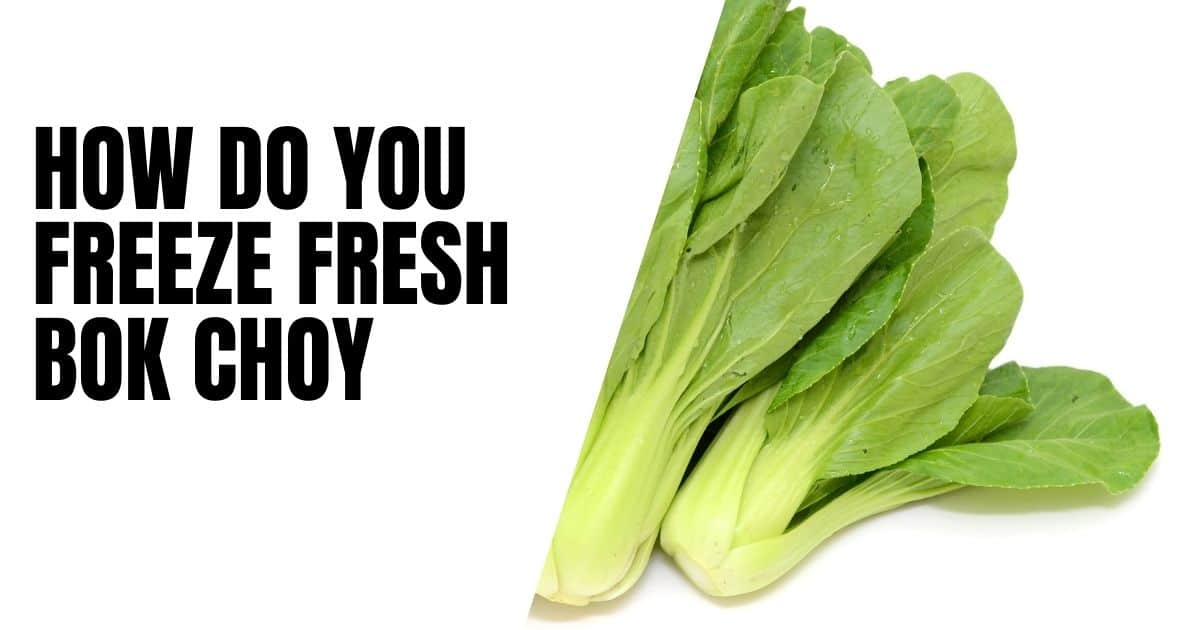
Fresh bok choy can be frozen either raw or blanched. Either way, flash freeze it to ensure you maintain its quality and structure longer.
It is important that when you go to the grocery store to buy your bok choy, presuming you haven’t grown your own, that you select the greenest, freshest looking ones. Any bok choy that looks bruised or is turning yellow should be avoided.
Many people believe blanching fresh bok choy is essential before you freeze it to preserve its flavor, texture, and color.
To blanch your vegetables follow the steps below:
Step 1
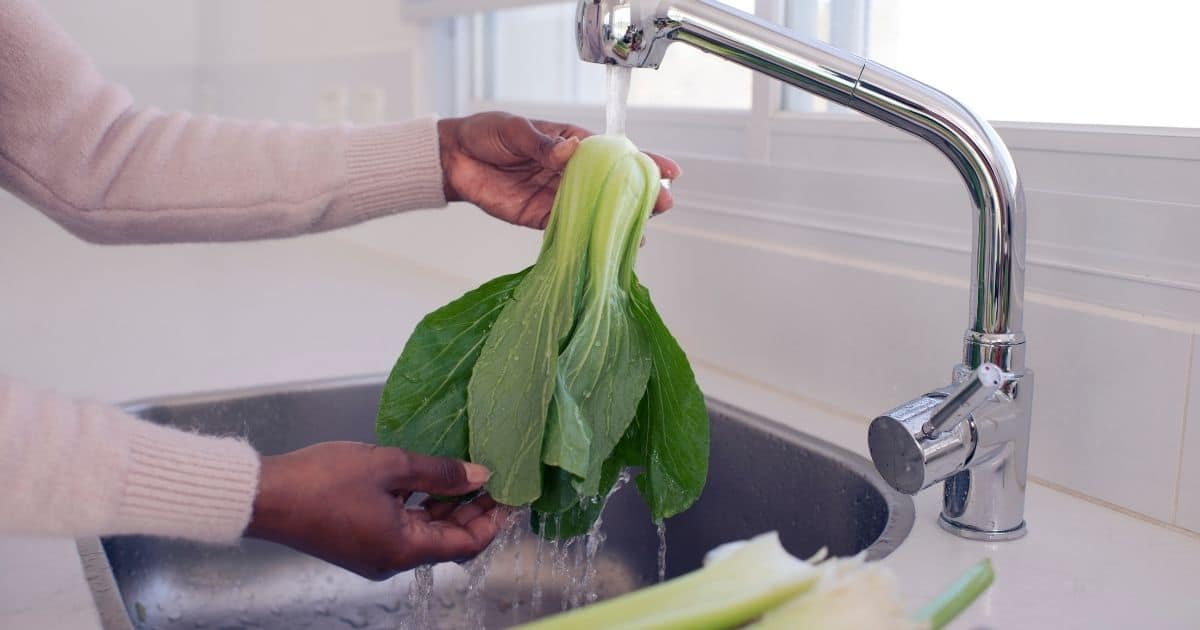
Rinse the bok choy under running water to remove any dirt or debris.
Step 2
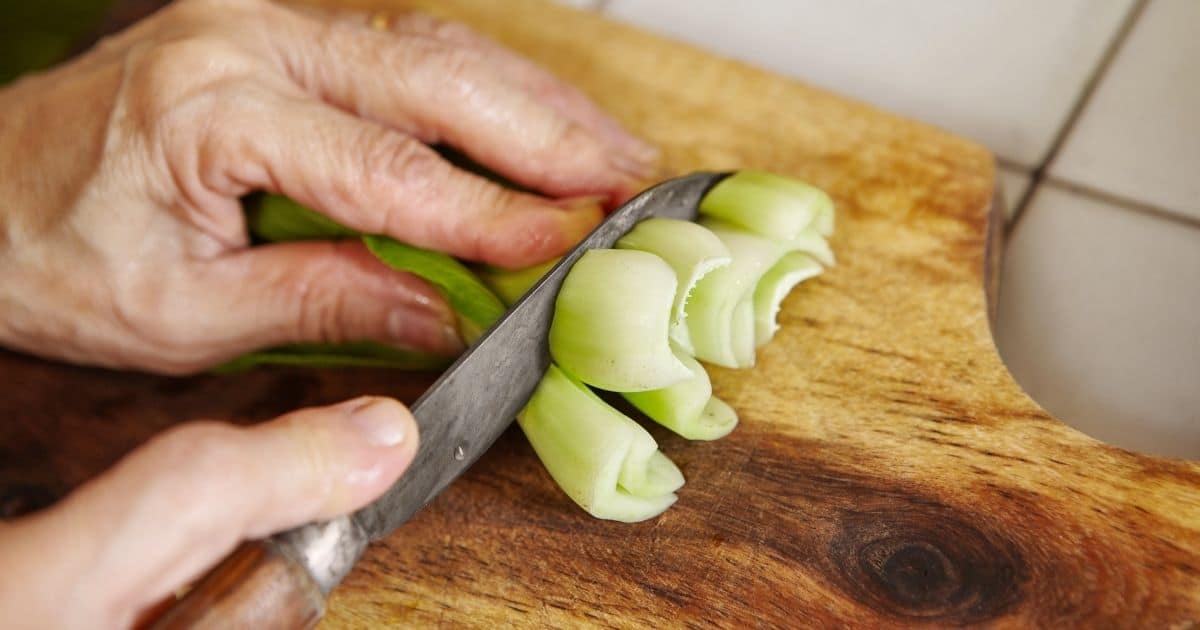
Cut the ends of the stems off using a sharp knife. If the vegetable has not been trimmed. If you are dealing with a larger bok choy, cut off the tough white base where the leaves emerge. Shred the bok choy into bite-sized portions for your dishes.
Step 3
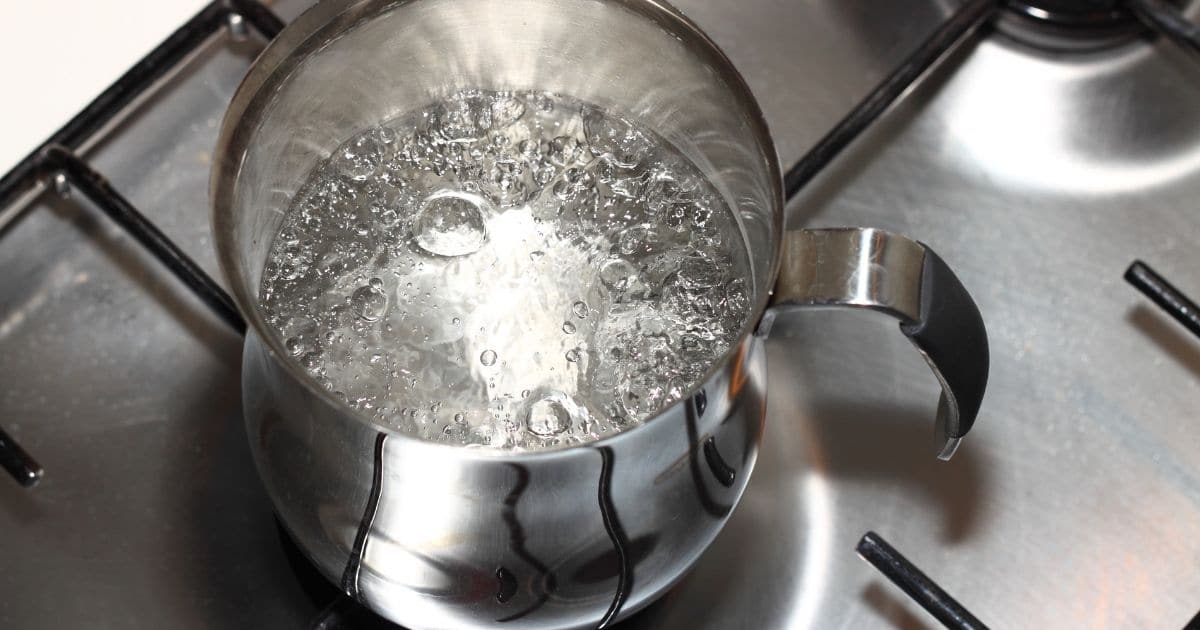
Boil a pot of water over medium to high heat.
Step 4
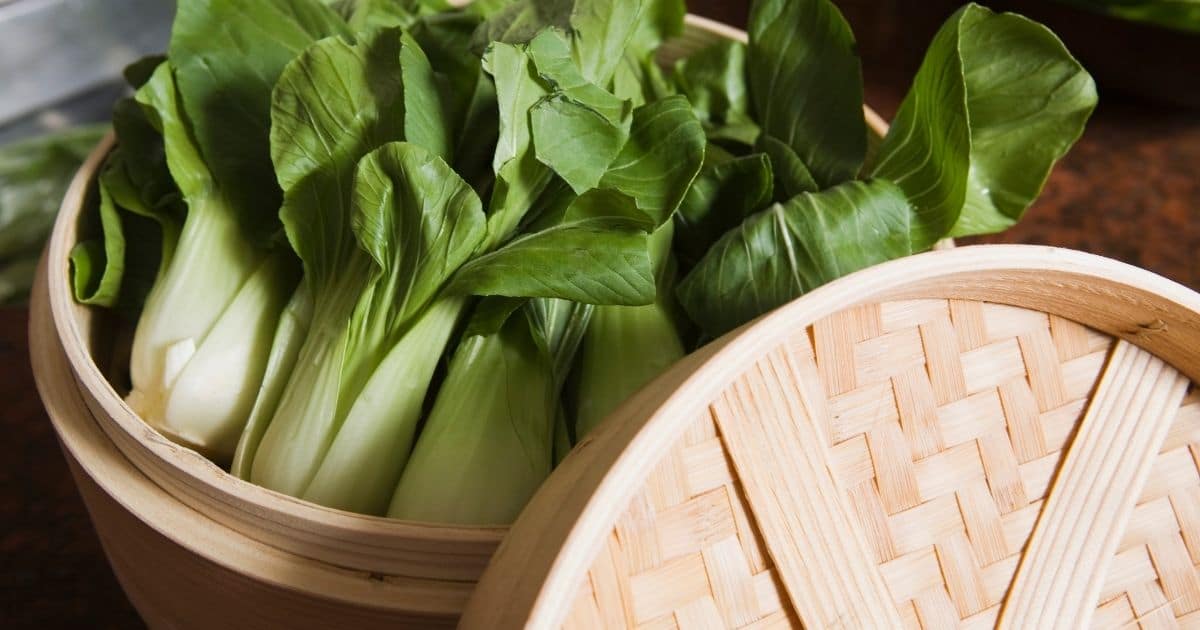
Put the bok choy in a steamer basket or a colander and then submerge the basket in the pot.
Step 5
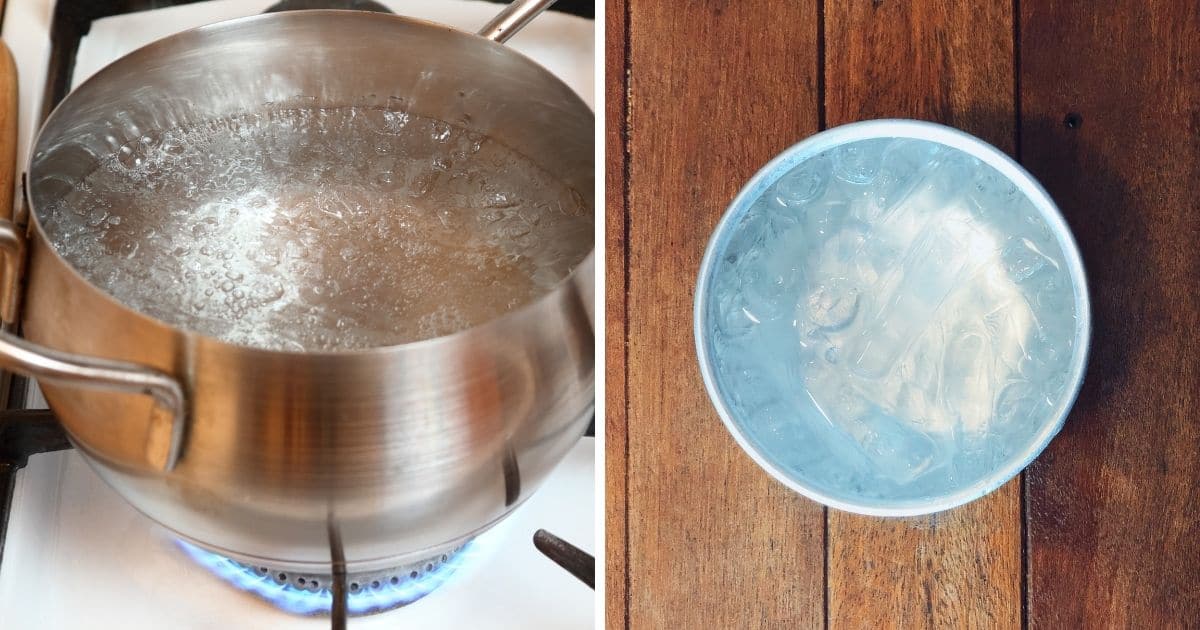
Blanch the bok choy for 40 seconds or until the leaves become bright green.
Remember you will cook your vegetable later on when you are ready to add it to your dish, so no need to overcook your bok choy at this stage.
After 40 seconds, take the basket off the pot and submerge it into ice water until it is completely cool. This step is important to do immediately, as it will halt the cooking process. Fail to do submerge your vegetable in the cold water immediately will result in the bok choy being cooked and potentially becoming mushy when defrosted.
Step 6
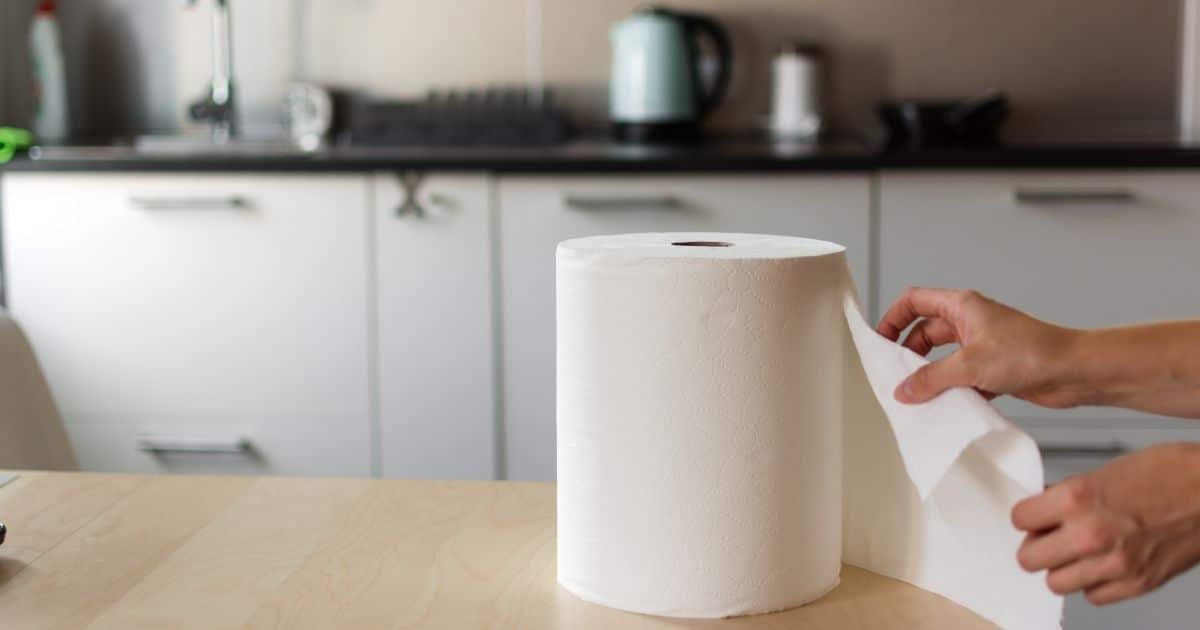
Shake off any excess moisture from the leaves and absorb any residue water using a paper towel.
Step 7
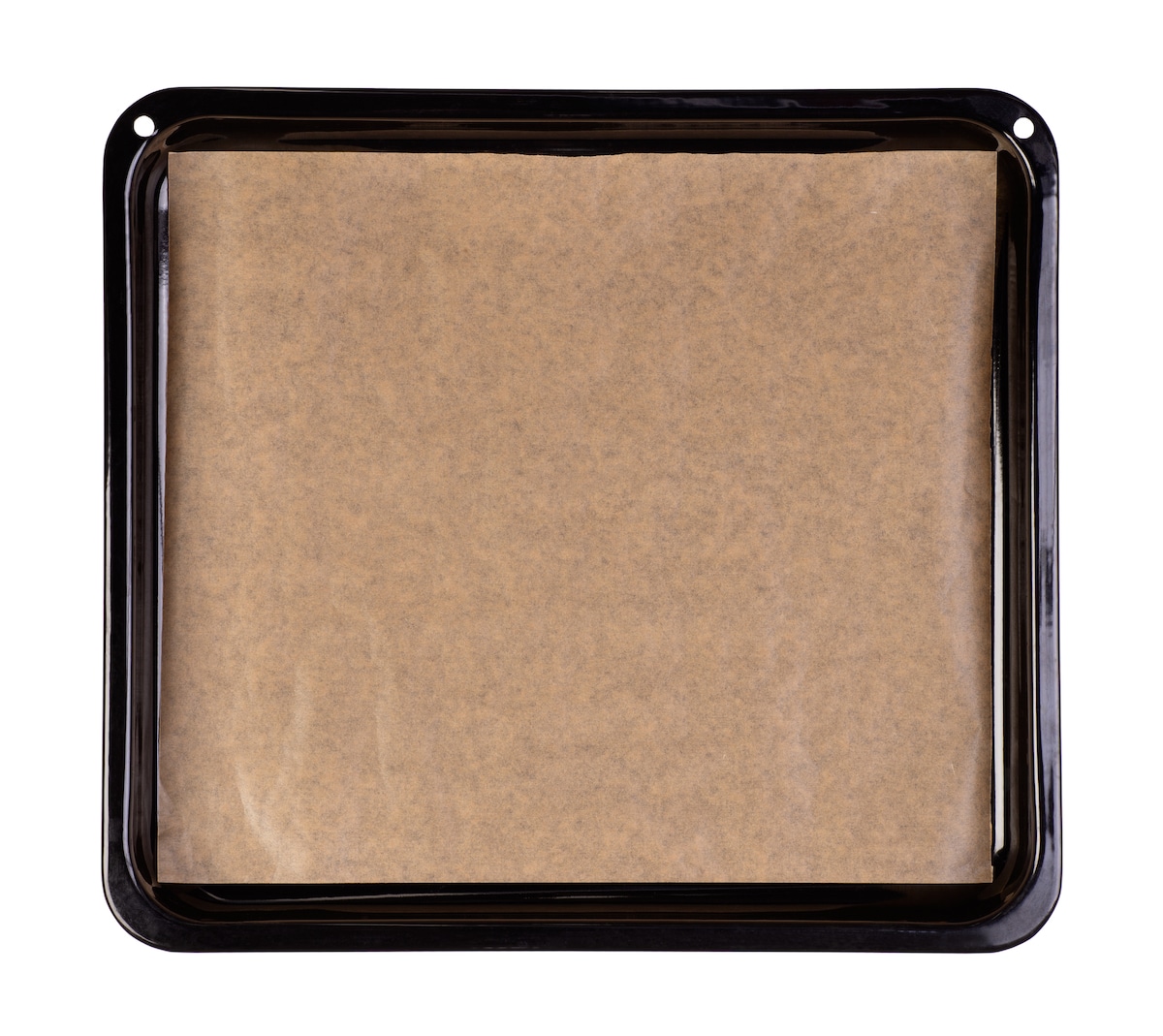
Flash freeze your cuts before permanently freezing them. This helps the bok choy retain its quality and structure longer.
To flash freeze your bok choy ensure the leaves or cuts are as dry as they can be, extra moisture will cause your vegetable to turn mushy when defrosted. Then spread the leaves or cuts into a pan lined with baking paper. place the tray in the freezer for 15 – 20 minutes or until the bok choy is firm to the touch. Then your vegetable is ready to be transferred to a more permanent storage container.
Step 8
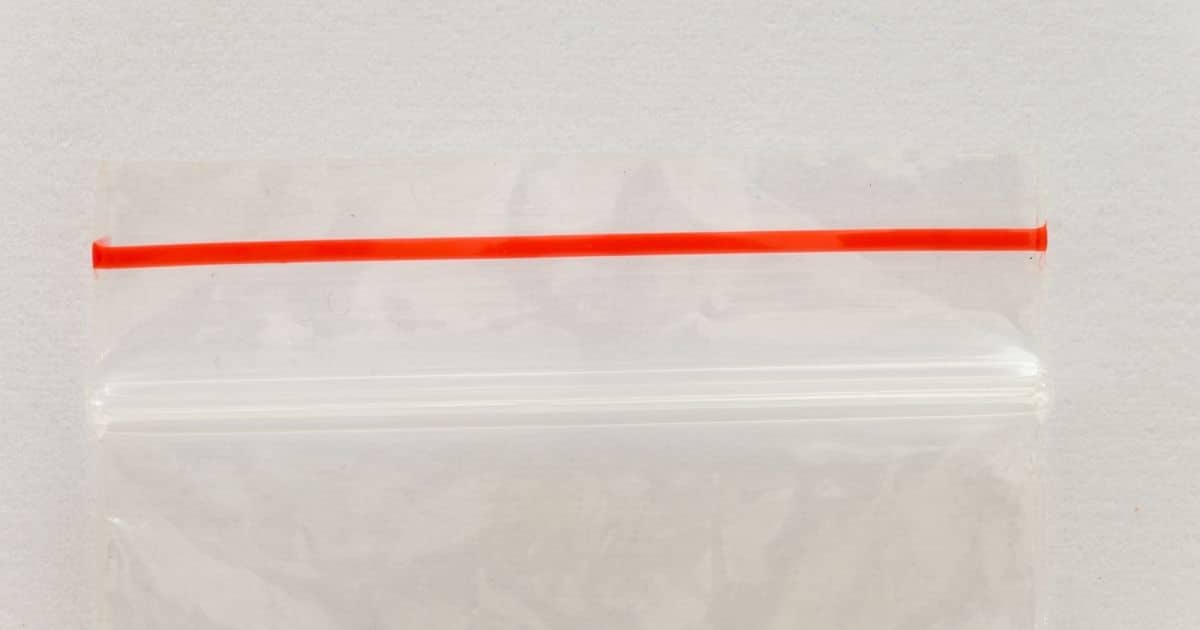
Transfer your flashed freeze pieces to a ziploc bag.
How Do You Store Bok Choy In The Freezer?
Firstly, you need to decide how much bok choy you want to freeze and how much room you have available in your freezer. Once this is ascertained, you can cut up your bok choy into bite-sized pieces and place them into a labeled Ziploc bag. A Sharpie (permanent) pen to label the date that you froze the bok choy will ensure it is not smudged off when in the freezer.
Lay your Ziploc bag flat and seal it almost all the way, leaving just enough space to slip in your straw. The straw is there for you to suck out as much of the air in the bag as possible before you immediately seal it. If you have a vacuum-sealer, this would be even better and very helpful if you are using multiple bags as it will save you time and breath!
Make sure you lay the freezer/Ziploc bag flat in your freezer. Once the bok choy has frozen flat, you can move the bags around to accommodate other foods, if necessary.
How Long Does Bok Choy Last In The Freezer?
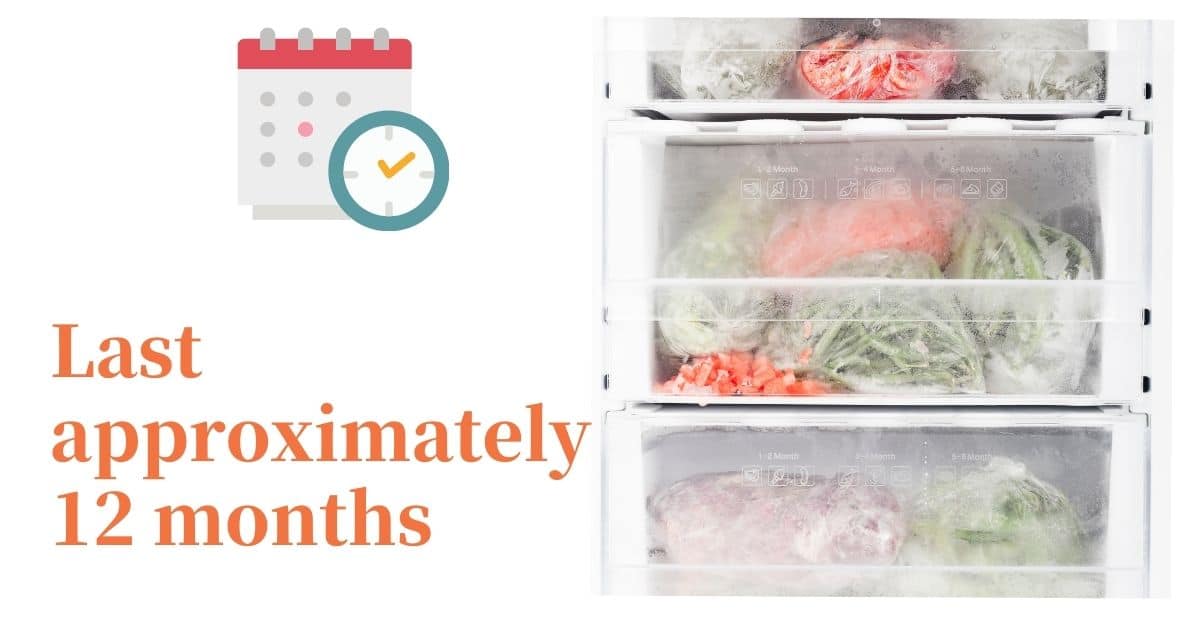
Bok choy, if properly stored, will maintain its best quality in the freezer for approximately 12 months.
While it will remain safe to eat beyond this time period, as long as the Bok choy has been kept consistently frozen at 0°F, its quality will reduce with every passing month.
How To Defrost Frozen Bok Choy
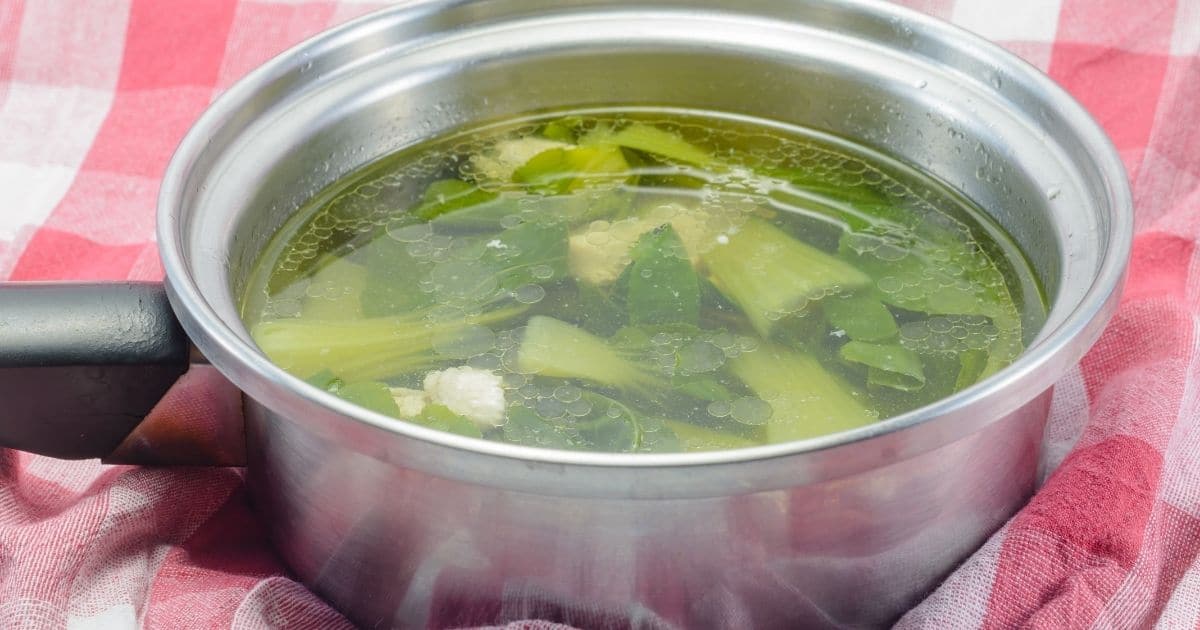
Very little is required in the way of thawing frozen bok choy. You can simply add the bok choy directly into the meal you’re cooking, and it will defrost almost immediately. This is especially true if you are cooking stir-fries, stews, or soups. The bok choy will defrost, retaining its flavor and structure.
However, if you’d like to defrost the vegetable prior to cooking, it is possible to do so. Just quickly submerge the frozen bok choy in a bowl of room-temperature tap water for two hours, and it will be ready for adding to your home-cooked meal. This method is more advisable for meals different from those stated above or if you want to eat them fresh.
Do not be tempted to submerge the bok choy into warm or hot water to reduce the defrosting time, as you could run the risk of actually cooking the vegetable. This could
result in a mushy bok choy with reduced flavor-power.
How To Cook Frozen Bok Choy
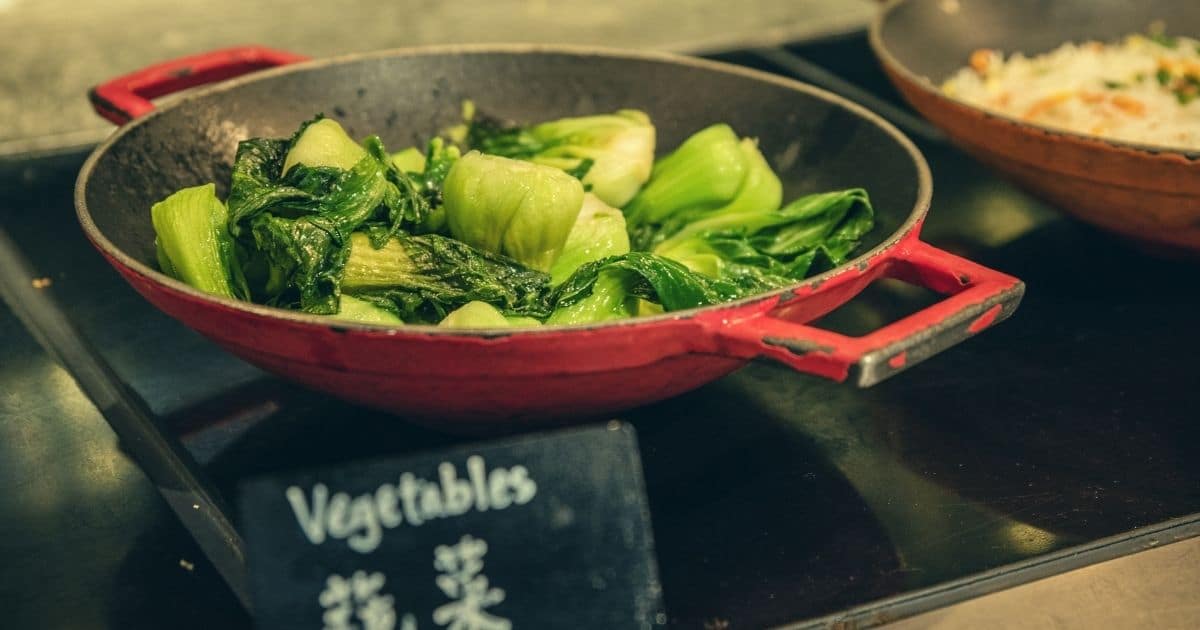
If you are preparing a stir-fry, stew or soup, it is so easy to add bok choy that you have frozen in your freezer. Simply remove the amount of bok choy you require from the freezer, unseal the freezer/Ziploc bag in which it rests and add it directly into your meal during the cooking stage. The heat will naturally defrost the bok choy, releasing its flavors into the meal while maintaining its crunchy texture.
Bok choy can also be defrosted in the refrigerator for 2-3 hours and used when thawed. The bok choy will not be as firm as it was before being frozen, but it will not be entirely soggy either. It should be eaten within two days.
Conclusion
Without a doubt, bok choy is a flavorsome and nutrient-rich vegetable that can be frozen either directly from purchase with no preparation or with a few steps that involve blanching or flash-freezing.
It is a great addition to a stir-fry or soup and with the added simplicity of no defrosting, it is a win-win for the cook and the consumer. Personally, I cannot wait until bok choy is back on sale at my grocery store. I plan to buy in bulk and freeze it so I always have some to hand.
